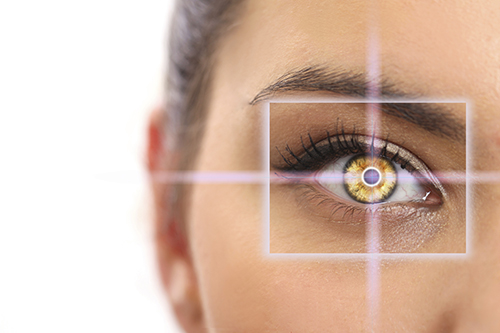Ocular Cicatricial Pemphigoid
Ocular Cicatricial Pemphigoid (OCP)

Ocular pemphigoid has several other names such as mucosal pemphigoid, and mucous membrane pemphigoid. If you have any questions please ask Dr. Chu about your treatment options. The website information below will give you necessary information for understanding this rare, but potentially vision damaging condition. Please note that this website is for informational purposes and that engaging in treatment of ocular cicatricial pemphigoid should be done in conjunction with a qualified ophthalmologist specialized in understanding ocular immunology.
What is Ocular cicatricial pemphigoid (OCP)?
(OCP) is a rare autoimmune disease that affects the skin and mucous membranes of eye, especially the conjunctiva. Patients may develop blistering of their skin and scarring of the conjunctiva. (OCP) is characterized by the formation of painful, oozing blisters on the skin, mouth, nose, genitals, intestinal tract or eyes. It is considered an autoimmune disorder, meaning that the body’s immune system mistakenly triggers inflammation and blistering on otherwise healthy tissue.
How Ocular cicatricial pemphigoid (OCP) does affects the eyes?
The condition affects the eyes by causing inflammation of the conjunctiva which is the thin layer covering both the white part of the eye (the sclera) and the inner surface of the eyelids. The inflammation causes redness, discomfort, grittiness and dryness of the eyes. If the condition is not treated it may permanently damage sight by causing scarring of the cornea, the ‘front window’ of the eye.
Treating Ocular cicatricial pemphigoid (OCP)
With pemphigoid, the white blood cells attack skin and mucous membrane, particularly mucous membranes of the mouth, eyes, nose, throat, and rectum. Patients may or may not have more than one site affected by the disease, but 70% of the patients with cicatricial pemphigoid have eye involvement. And because this is a systemic autoimmune disease, it cannot be successfully treated, long-term, with simple topical (drops) therapy. It must be treated systemically, and typically with strategies that “cool down” the immune system, i.e., suppress the immune system sufficiently to stop the autoimmune process. Suppressing the immune system sufficiently to stop the autoimmune process for a short period (one to five years) is usually sufficient to induce permanent remission of the disease. If this is not done, then continued inflammation, continued scarring, and eventual blindness in both eyes can occur. Listed below are two treatment options
Eye drops – These may include steroid drops to reduce inflammation and lubricants to keep the eyes moist.
Systematic Medications – Immuno Modulators
These suppress the body’s tendency to attack the eyes. Systematic medications are much more effective than eye drops in treating ocular pemphigoid. Depending on how advanced the condition is we can prescribe a combination of steroid and an immunosuppressant eg cyclophosphamide, methetrexate or mycophenylate. Regular blood tests are needed to ensure that there are no side effects.
Pemphigoid Facts
- Pemphigoid is a chronic scarring disease of the conjunctiva. It may be caused by drugs or eye drops but in most patients it is caused by too much activity of the immune system damaging the tissue under the conjunctiva.
- Cicatricial pemphigoid is a condition that primarily affects middle-aged or older adults. Either sex can get the disease, but women are affected slightly more often than men.
- Patients may or may not have more than one site affected by the disease, but 70% of the patients with cicatricial pemphigoid have eye involvement.
- Treatment Options are limited but organizations such as Metropolitan Eye Research and Surgery Institute are engaged in continuous research.
- There is no cure for pemphigoid but with proper long-term treatment and careful follow up it is usually possible to control the inflammation and the vision threatening side effects.
Symptoms of ocular cicatrical pemphigold include
- Red eyes
- Dry eyes
- Tearing
- Itchiness
- Lesions of skin and other parts of the body
What causes ocular pemphigoid?
It is an autoimmune condition in which the body produces chemicals called antibodies that damage itself. The reason that this process occurs is unknown – it is not caused by anything the patient has done and will not be cured or improved by any change in lifestyle or diet. There are many other autoimmune conditions, for example thyroid deficiency and rheumatoid arthritis.
Why is it important to diagnose pemphigoid?
The most serious problem associated with untreated cicatricial pemphigoid is possible blindness if the cornea is involved. The word “cicatricial” means “scarring”, and if the disease affects the eye, the scarring that results often leads to blindness if the condition is not diagnosed early enough and treated properly. It is important for people of the New York and New Jersey region to seek the consultation of a knowledgeable pemphigoid ophthalmologist. Fortuneately Dr. Chu has dedicated his career to understanding ocular immunology diseases such as pemphigoid.
The Future of Ocular cicatricial pemphigoid (OCP)
The future holds excellent potential for patients with ocular cicatricial pemphigoid. Research facilities have identified the “susceptibility gene” for developing this disease, and have identified the target antigen that gets attacked by the patient’s white blood cells when a patient develops cicatricial pemphigoid. Research teams are cloning the gene for that antigen, and hope to develop a diagnostic test, which will enable diagnosis of the disease much earlier in its development cycle.

